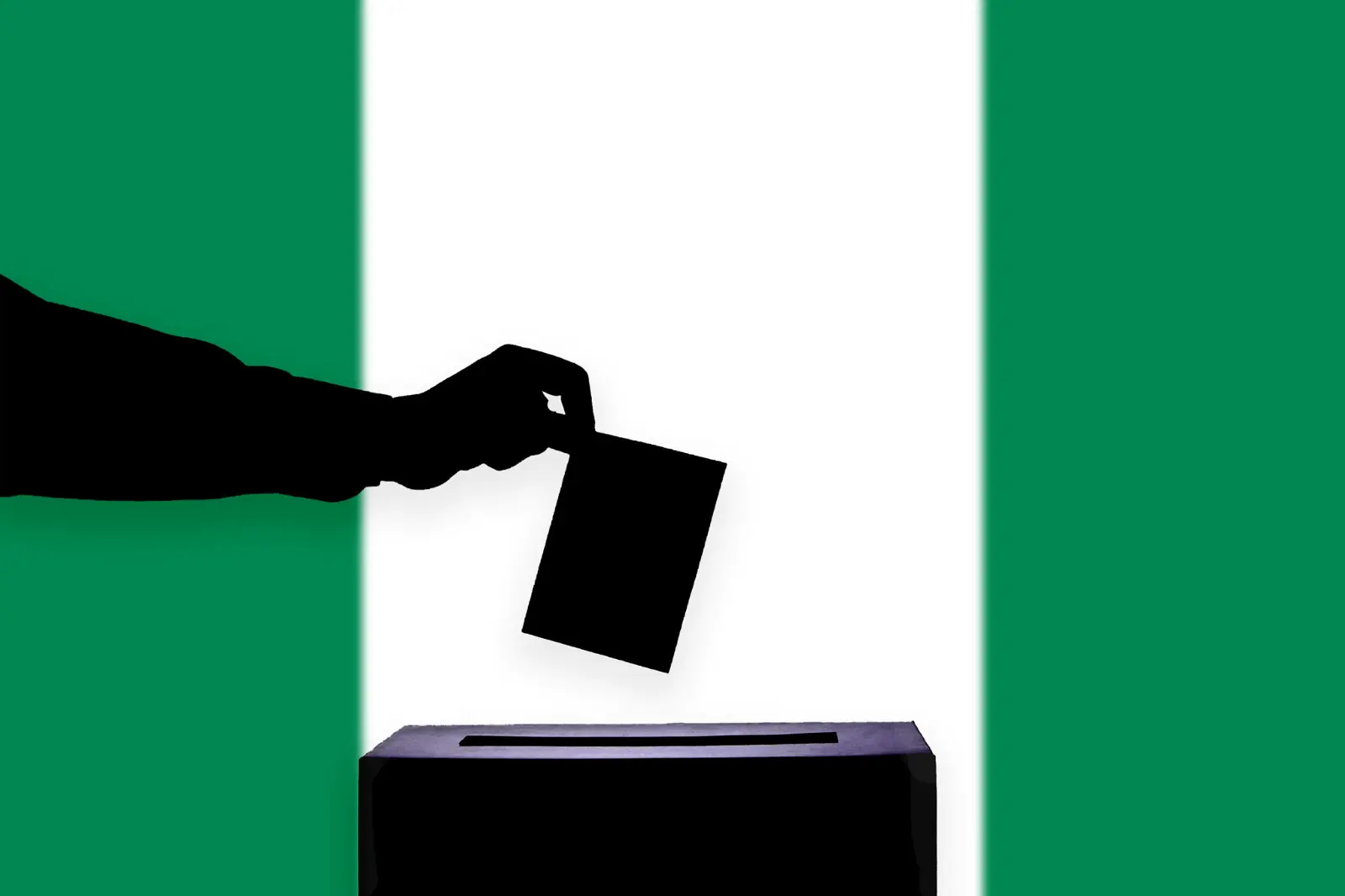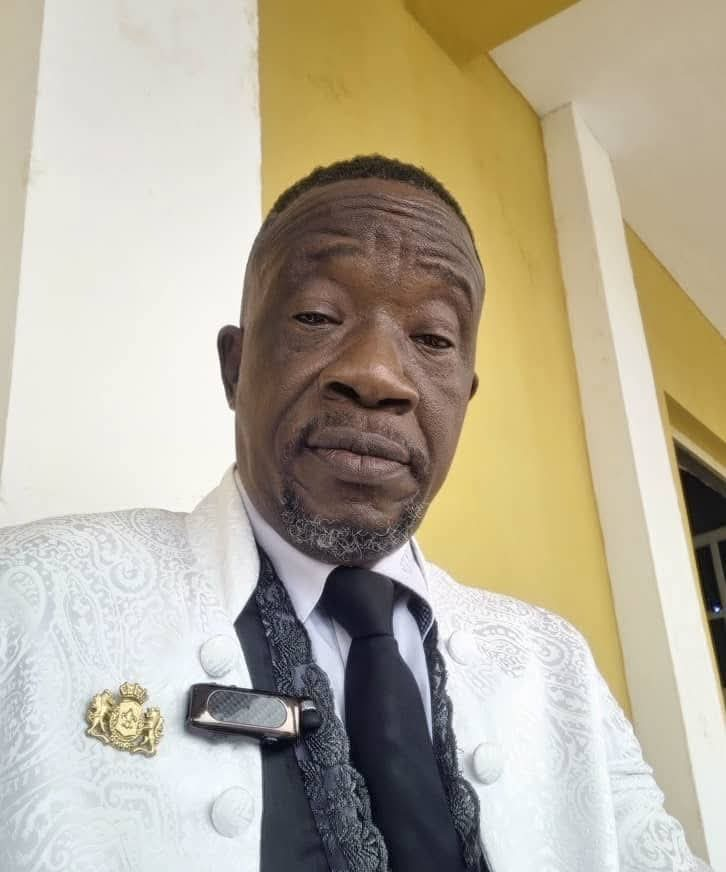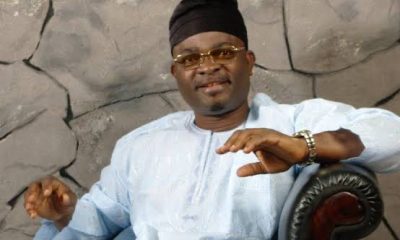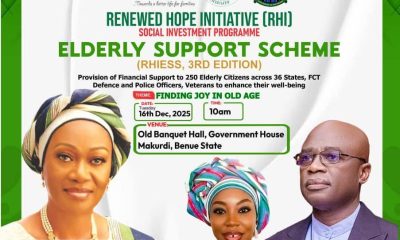POLITICS
Elections and their Anxieties
By MacDonald Ebere
Over the years, I have come to realise that many Nigerians are often traumatised by elections. These elections come with their pressures. The stakes are usually very high – both emotionally and financially. They are often winner-takes-all kind of scenarios, and are not helped by ethnic and religious tensions.
If you add the slipperiness of some politicians and the gullibility of some voters, then you have a perfect recipe for collective anxieties. But should elections and our democracy be such humongous psychological burdens? What can be done to save us from the angst and anguish of our politics?Politics in a “true” democracy is like a market exchange where the bargain is about good governance.
In this bargain, vote is the currency of the exchange. Whoever has more votes carries the day. Politicians are the bidders, while voters are offering the vote. The politicians try to win over the voters through the electoral promises of good governance. The voters cast their votes on the basis of their judgments of who among the politicians holds better promise for them. Election then is the marketplace and the platform of this contestation and exchange. It’s a fascinating scenario because in this analogy we see clearly what the stakes are and what the role of each player is.Each player needs the other because in this political marketplace none of the actors can do without the other. The politicians need the voters; the voters in turn need good leaders that will emerge at the conclusion of the political exercise. That is what it is, no matter what some people might say. The bidders know too well that their wishes only come through when voters as critical stakeholders support them and vote for them. It is a common narrative in Nigeria that politicians can do without the voters. That is not correct. Those who are active politicians know that attracting votes is not easy at all. They work very hard to get it.
In fact in Nigeria today, the politicians work harder than the electorates in this marketplace of politics. Now, we are in another cycle of elections. We see the politicians travelling to every part of the country or states, engaging in wide consultations, having long meetings, building alliances and bridges, wooing stakeholders and seeking support from constituencies. The politicians are busy day and night to realise their dreams. The ongoing party primaries, in view of the 2023 elections, is a litmus test of the amount of work politicians are doing to become party flag-bearers for the different elective positions. If it were easy, if they have a shortcut, they wouldn’t put themselves through such stress.
The electorates also have their own responsibilities in this electoral equation, as described already. For this marketplace to be maximally beneficial to everybody, we all must play our respective roles. For the political marketplace to be able to deliver not just governance but good governance, we all have our roles to play, whether as bidders for or as sellers. It is important that we all understand this to help us make a decision to get involved in seeing that our political processes are successful by delivering good governance.
Voters elect those who occupy political offices to deliver good governance, protect installed facilities in communities and continue their participation as watchdogs. Voters have to critically examine the promises of all contesting politicians in the light of good governance and the expected dividends of democracy. Unfortunately, the dominant narrative in our country is where the bidders are projected as having the sole responsibility to deliver good governance, while the people, the voters, just sit back and do nothing.
I think that the politician and the voter must remain mindful of this contractual relationship. It is not right for the voter as seller to simply sit back and relax; s/he must continue to play an active part in the political process by doing all he/she should as a voter to see that his interests are represented well through good governance. Even if a politician fails the voter by not redeeming his pledges during the first time, should the voter allow himself to be deceived a second time when the politician comes back to bid for votes for a possible second term? Such a time is a good payback time, I suppose. As the Igbo people say, only a fool lets the same stick poke him oIn the same eye twice. The voter has enormous power.
When a state government, for instance, fulfils its electoral promises by installing some facilities in communities, the communities should look after the facilities against vandalisation. The protection of installed facilities or infrastructure is the responsibility of the community or the neighbourhood where the installation has been made. It is painful to see that electrical installations or hospital equipment or even roofs and windows of school blocks put in place by governments, which are dividends of democracy to a community, are neglected and sometimes left to be stolen under the watch of the community. This is not a good development at all; and communities are worse off for it. In order to prevent such backwardness, communities should protect their own dividends of democracy.
How many voters ever listen to budget announcements? In the budget, the government outlines the capital projects that are to be executed in communities or locations. But many voters are not interested in the activities of government. They just vote and turn their back on the system. The contracts are awarded to companies belonging to members of the communities. The people should show greater commitments and ensure that these awarded contracts are executed, since they are the ones to enjoy it. It doesn’t help anybody if these contractors receive money and refuse to carry out contracts as expected. Unfortunately, vandals are protected by the same community members who are supposed to be beneficiaries of projects.
The people should rise up and play their active roles in order for democracy to work. Voting is one of such important responsibility. But it doesn’t end there. They must continue to actively participate in the political process. This way the politicians and voters will, respectively, do their bits so that the political space as a market place will be beneficial to both voters and politicians who solicit for votes. It is this mutually beneficial and reinforcing relationship that can save us from the onslaught of election anxieties.
MacDonald Ebere holds a PhD in political philosophy and writes from Owerri, Imo State, Nigeria.
POLITICS
2027 Election: Igbo’s Community Promises Votes for Eno

From Christopher Tom, Uyo
Non-indigence in Akwa Ibom State especially the Igbo’s community has promised to give the highest number of votes across the state to Governor Umo Eno come 2027 governorship elections in the state.
The Igbo community said they will not fail to vote massively for the Governor.
The President of Ohanaeze Ndi-Igbo Akwa Ibom State Chapter, Hon.
Keyceey Chidiadi made this known while speaking with media practitioners shortly after the Uyo chapter of Igbo community unity day celebration 2025 in Uyo.He said Igbo’s scattered across the 31 local government Area of the state without any doubt seriously doing their businesses without any crisis, showcasing their love, unity among the indigence of the state while also contributing their quotas to boost the state economy.
According to him, the Igbo’s are about five thousand while some have not been recorded because they have not identified with the community and advise others to join the train before it’s too late for them.
He said their vote come 2027 is massively for Pastor Umo Eno without compromise because of his leadership style and developmental strive, showcasing true democracy carrying every individual along not minding the state or religion the people came from but stand on peace, unity among the people to benefit the dividend of democracy.
He called on Igbo’s resident in the state to make sure they vote here without going to their various states to maintain their voting strength as the highest numbers of people across the non-indigence communities in Akwa Ibom State.
He said they are law abiding citizens and not ready to accommodate or entertain any crisis, violence, because of their peaceful nature created by God, especially respect for the government of the day while corporate to preach peace in the state. He commended the community for embracing peace after 27 years of crisis without a leader among them, but now peace has restored to them across the communities in the state.
POLITICS
INEC Begins Display of Preliminary Voter Register in Delta

From Francis Sadhere, Delta
The Independent National Electoral Commission (INEC), Delta State Office, has announced the commencement of the display of the Preliminary Voter Register for claims and objections across the state.
According to a press release by the Resident Electoral Commissioner, Etekamba Udo Umoren, the exercise will begin on Monday, 15th December 2025 and end on Sunday, 21st December 2025.
The display will take place at all the 25 Local Government Area offices of INEC in Delta State between 9:00am and 3:00pm daily.
INEC explained that the exercise is in line with the Electoral Guidelines and is aimed at correcting any anomalies that may have occurred during the recent voter registration exercise.
The Commission noted that the process is essential to producing a credible and reliable voter register, which remains a key instrument for conducting free, fair and credible elections.
The Commission urged eligible voters in the state to seize the opportunity to visit INEC offices in their respective local government areas to confirm that their names and personal details are correctly captured in the register. Voters were also encouraged to report cases of omission, errors in spelling, or any other discrepancies.
In addition, members of the public were advised to raise objections to the inclusion of names of deceased persons, underaged individuals, or any other doubtful entries found in the register.
INEC reiterated its commitment to electoral integrity and called on all Deltans to actively participate in the exercise as part of their civic responsibility.
The Commission concluded the notice with a call to action, encouraging eligible citizens to register and participate in the electoral process.
POLITICS
Gov Adeleke Didn’t Join APC Because Osun People Already Hated the Party – Jackson Ojo

…Says Defectors to Ruling Party Will Regret
By Mike Odiakose, Abuja
A former chieftain of the All Progressives Congress (APC), Dr Jackson Lekan Ojo has given further insight into why governor Ademola Adeleke chose the Accord Party instead of the APC when he left the Peoples Democratic Party (PDP).
All the governors that dumped the PDP had detected to the ruling APC, including governor Simi Fubara of Rivers State who joined the party last week.
Speaking at the weekend, Dr Jackson Ojo said the people of Osun State prevailed on Governor Adeleke not to join the ruling APC when it became apparent that there was no point in remaining in PDP over the festering crisis in the PDP.
According to him, the people of Osun State already have deep hatred for the APC and joining the party was never an option for the governor.
Dr Ojo maintained that the performance and achievements of Governor Adeleke is his biggest selling point ahead of campaign for his reelection and the people of Osun State will troop into the Accord Party with him.
“Governor Adeleke trusted himself. He trusted his performance and achievements as governor of Osun State that is why he crossed over to a relatively unknown political party, the Accord Party. All of us have been talking to our people in Osun State to give him maximum support. I have featured of recent at least three times in Osun Broadcasting Corporation to talk to our people. I have been discussing about this, I have been contributing.
“I was one of the people that told the governor to go to Accord Party. I told my governor you don’t need to go to APC because the people of Osun State already hated the APC. I told him to go to any other political party, go to APGA, go to Accord Party because of your performance it will make everybody follow you. And he is going to win the election.
He added that the PDP is already a dead party and that is the reason gales of defection have been hitting the party.
He, however, warned that politicians who are defecting to the APC will regret it as they will be denied the automatic ticket that was used as bait to lure them into the party.
“I don’t think there is any miracle that can resurrect PDP today because they are already in the grave and it just to cover the earth on them. I don’t blame anybody crossing from the PDP because the party is already factionalized. But why are they all going to the APC, the APC is over saturated now. There are persons in APC before that have been fighting.
“You know I belonged to this party before and I know their modus operandi. This is a party that will tell you to go and queue and wait for your time because some people are already working before you came. APC is not a party you just cross to and they give you ticket the second day.
“When my brother who is a member of the House of A Representatives decamped from the PDP to the APC I told him it is good to decamp from the PDP but for going to the APC you are going to regret it. They promised them that they are going to give them automatic ticket but at the end of the day he went and picked the membership card but they called them and told them that crossing to the APC does not mean you are going to have automatic ticket. I hope it will not happen to Simi Fubara in Rivers State.”
Speaking on cold war in Rivers state between Governor Fubara and Lawmakers in the State, Dr Ojo declared that the loyalty of the Lawmakers should be to the people of Rivers State and not to the FCT Minister, Nyesom Wike.
“Former governor Nyesom Wike did not give life to the members of the House of Assembly that are loyal to him. Whatever he must have done for them the governor is there today and he could do better.
“The law is already there in place. Nobody should teach the governor how to settle with these people (Lawmakers). These people are not stones, they are not abstract. They are people you can call on phone, they are people you can meet. You don’t need any other person or intermediary. You have direct access to them and they have direct access to you.
“He should deploy more diplomatic ways and he has to settle with them.
“The members of the House of Assembly don’t need to be loyal to the governor, they just have to do their work according to the dictates of the law. Then the governor too has to do his work according to the dictates of the law. We are greeting or not greeting does not matter.
“What is loyalty? Loyalty of the governor and loyalty of members of the House of Assembly is to Rivers people. Greeting or no greeting, when it is time for the governor to send Bill to them he will send it, they will study it holistically and if it is for the benefit of the people of Rivers State they should approve it.
Reacting to the defection of Governor Fubara, Dr Ojo said: “Fortunately or unfortunately I am not one of his consultants. Possibly he must have consulted with his loyalists. I monitored his statement when he said those of you that suffered with him here and there that now we are going to the APC. He knows the best why he decamped to the APC.
“Decamping to APC does not matter anything to me because a political party is just a vehicle. Every achievement of Fubara in Rivers State today is not because he belonged to the PDP. If all his co-travelers are well contacted and they are well informed that the situation will not boomerang against them, then I say kudos to them, congratulations to them.
“But I hope whatever chased them out of PDP will not chase them out of APC.”


















